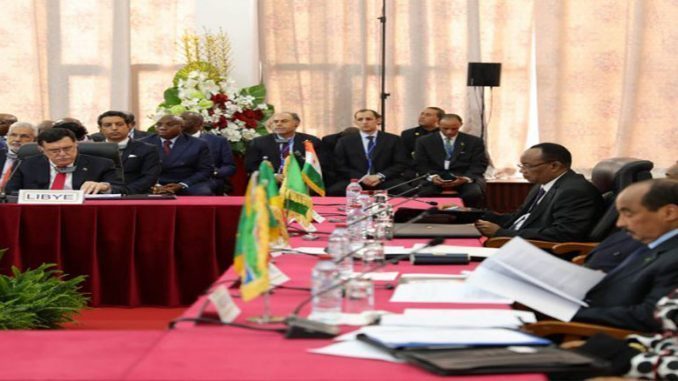
Presidency Council (PC) head Faiez Serraj has blamed the many challenges faced by Libya on decades of previous turmoil in the country. He was speaking at a mini-summit in Brazzavile, Congo, organised by the African Union’s High Level Committee on Libya.
In an apparent dig at Libya’s militias and Khalifa Hafter’s Libyan National Army (LNA), Serraj called on the various armed factions to avoid political disputes so the country could recover and unify state institutions.
He said that, despite Misrata-led Bunyan Marsous forces ousting the so-called Islamic State from Sirte last December, Libya continued to suffer from “penetration” by terrorist organisations. He also appeared to claim Libya lost 3,000 fighters in the Sirte operation, a number higher than most previous figures.
Serraj also complained that the international arms embargo still remained in place even though he had tried to make the international community realise the importance of supporting Libya by allowing to have better means to fight terrorism.
Algeria’s Prime Minister, Abdelmalek Sellal, said the AU and UN had to “get more involved” in the peace process if a realistic compromise was to be reached.
Noting that the meeting “takes place at a time when the crisis settlement process in Libya is facing difficulties and deadlocks,” he said that nonetheless it offered the opportunity “to assess together the on-going efforts for the return of peace, security and stability in Libya”.
Algeria and Egypt have increasingly been spearheading their own separate efforts to support Libya and Sellal drew attention to his own country’s exertions. He also said it would host the next organised by the High Level Committee on Libya summit, without specifying a date.
UN envoy Martin Kobler described the various meetings he had during the summit as “intense” but was positive about the “common approach” he saw, noting especially his meetings with Serraj and Algeria’s Minster for Maghreb, Arab and African Affairs, Abdelkader Messahel. Kobler was attending the Brazzaville summit in his capacity as one of the members of the Troika on Libya – the AU, Arab League and UN.
The President of Chad, Idriss Deby, who is also current AU chairman, said a cessation of hostilities was needed to put an end to the suffering of the Libyan people. There had to be a state built on the foundation of stable institutions, he added.
Congo’s president, Denis Sassou Nguesso, said a political compromise on Libya was critical because of the deterioration in security in Libya.
At a similar conference two months ago in Kigali, Rwanda, it was agreed a more proactive approach towards Libya was needed.
